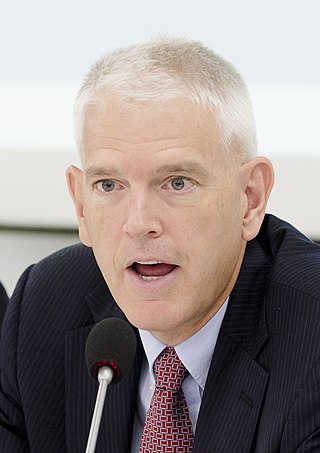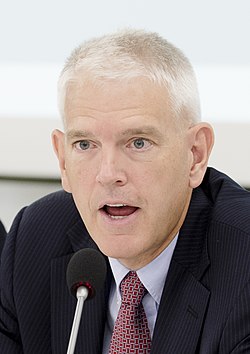Top Qs
Timeline
Chat
Perspective
Steven Pifer
American diplomat From Wikipedia, the free encyclopedia
Remove ads
Steven Karl Pifer (born 1953) is a senior fellow at the Brookings Institution's Center on the United States and Europe as well as the director of Brookings' Arms Control Initiative.[1] He was formerly senior adviser with the Center for Strategic & International Studies in Washington, D.C., and the third United States Ambassador to Ukraine from 1998 to 2000.
Remove ads
Education
Pifer graduated from Stanford University with a B.A. in economics in 1976.[2]
Career
He served at the United States Embassies in Warsaw, London and Moscow, and as advisor on the U.S. delegation to the negotiations on intermediate-range nuclear forces in Geneva.
From 1978 to 2004 he was a foreign service officer with the US Dept. of State.[3] From 1996 to 1997, he served special assistant to the president and senior director for Russia, Ukraine and Eurasia on the National Security Council. From 1998 to 2000, he served as the United States Ambassador to Ukraine. From 2001 to 2004, he served as deputy assistant secretary of state in the Bureau of European and Eurasian Affairs, with responsibility for Russia and Ukraine.
He was a visiting scholar at the Stanford Institute for International Studies in 2000–2001."[4]
Remove ads
Publications
Pifer is author of "The Opportunity: Next Steps in Reducing Nuclear Arms" with Michael E. O'Hanlon.[5]
References
External links
Wikiwand - on
Seamless Wikipedia browsing. On steroids.
Remove ads

